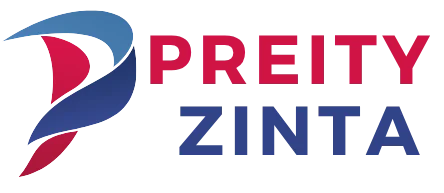Table of Contents
ToggleEmbarking on a language learning journey is a transformative experience that opens doors to new cultures and perspectives. It’s more than just memorizing vocabulary and grammar rules; it’s about connecting with people and embracing the nuances of communication. Each step taken in this journey brings excitement and challenges, shaping not only linguistic skills but also personal growth.
In today’s globalized world, mastering a new language can enhance career opportunities and enrich travel experiences. Whether it’s picking up a few phrases for a vacation or achieving fluency for professional advancement, the path to language proficiency is unique for everyone. This article explores the essential stages of the language learning journey, offering insights and tips to make the process enjoyable and effective.
Understanding the Language Learning Journey
Language learning unfolds through distinct stages. Each stage presents unique challenges and milestones that contribute to overall mastery. Understanding these stages aids learners in navigating their language journeys effectively.
The Stages of Language Acquisition
- Pre-production Stage: Learners primarily listen and absorb the language. They may respond non-verbally or with simple words.
- Early Production Stage: This stage involves short sentences and basic phrases. Learners begin to express simple thoughts.
- Speech Emergence Stage: Vocabulary expands, allowing for more complex sentences. Learners can engage in short conversations.
- Intermediate Fluency Stage: Learners communicate with greater confidence. They use more varied vocabulary and complex grammatical structures.
- Advanced Fluency Stage: Mastery of the language occurs. Learners express themselves with nuance and sophistication, participating in discussions on diverse topics.
The Importance of Motivation
Motivation drives language learning success. Intrinsic motivation stems from personal interest and enjoyment, while extrinsic motivation arises from external rewards, such as career advancements. Identifying sources of motivation encourages commitment and persistence. Setting clear goals aligns motivation with actionable steps, enhancing focus on learning objectives. Regularly celebrating small achievements keeps motivation high and fosters a positive learning environment.
Strategies for an Effective Language Learning Journey

Effective language learning requires strategic approaches that enhance engagement and retention. The following strategies outline valuable techniques for maximizing the learning experience.
Immersive Learning Techniques
Immersive learning techniques enable learners to practice in real-world contexts. Engaging with native speakers through language exchanges fosters authentic conversations. Participating in cultural events, such as cooking classes or music festivals, deepens understanding of the language’s cultural nuances. Consuming media, such as films, podcasts, and books in the target language, exposes learners to varied vocabulary and pronunciation styles. Practicing daily, even in short sessions, significantly enhances retention and fluency.
Utilizing Technology and Apps
Utilizing technology and apps accelerates language learning by providing accessible resources. Language-learning apps, like Duolingo and Babbel, offer structured lessons tailored to individual progress. Online platforms, such as HelloTalk and Tandem, connect learners with native speakers, facilitating conversation practice. Flashcard apps, like Anki, support vocabulary retention through spaced repetition techniques. Virtual reality environments immerse learners in simulated interactions, enhancing practical skills. Regularly leveraging these tools fosters a consistent and enjoyable learning experience.
Overcoming Challenges in the Language Learning Journey
Every language learner encounters challenges along their journey. Identifying these obstacles and employing strategies to overcome them is crucial for success.
Common Obstacles Faced by Learners
- Fear of Making Mistakes
Learners often hesitate to speak due to fear of errors. Embracing mistakes as learning opportunities facilitates growth.
- Limited Vocabulary
Insufficient vocabulary can hinder communication. Regular practice with new words and phrases enhances fluency.
- Pronunciation Difficulties
Mastering pronunciation poses a challenge for many. Consistent listening to native speakers helps improve clarity and accent.
- Time Management
Balancing language learning with other responsibilities can be tough. Creating a structured schedule increases productivity.
- Plateaus in Progress
Experiencing stagnation is common. Setting specific, achievable goals rejuvenates motivation and drives continued advancement.
Tips for Staying Motivated
- Set Clear Goals
Defining short-term and long-term objectives provides direction. Specific goals maintain focus and make progress measurable.
- Celebrate Small Wins
Acknowledging milestones boosts confidence. Celebrating achievements reinforces commitment to the learning process.
- Engage with the Culture
Participating in cultural events immerses learners in the language. Such involvement enhances understanding and appreciation of context.
- Utilize Technology
Language-learning apps and online resources facilitate practice and interaction. Convenience and accessibility support ongoing engagement.
- Join a Community
Connecting with fellow learners offers support and encouragement. Shared experiences cultivate a sense of belonging and camaraderie.
Personal Experiences and Testimonials
Language learners often share transformative experiences that highlight the rewarding nature of their journey. Through personal stories, they reveal insights into their challenges and victories.
Success Stories from Language Learners
- Maria’s Journey to Fluency: Maria, a Spanish learner, moved to Spain and immersed herself in the culture. Daily interactions with locals and participation in community events rapidly improved her language skills. She recalls how using the language in real-life situations built her confidence and accelerated her learning.
- James and Japanese: James, initially intimidated by Japanese characters, took a different approach. He focused on learning 10 new words each day and gradually incorporated them into conversations. He credits consistent practice and language exchange meetups for his fluency.
- Anna’s Online Adventure: Anna used various apps, including Duolingo and Tandem, to learn French. Engaging with native speakers online boosted her speaking confidence. She emphasizes that technology, coupled with an open mindset, led her to successful language adoption.
Lessons Learned Along the Way
- Embracing Mistakes: Language learners often recognize that making mistakes is a natural part of the process. They report that each error fosters improvement and leads to better understanding.
- Setting Realistic Goals: Many learners advocate for setting achievable milestones. Breaking down the language learning process into smaller goals made them feel more accomplished and motivated.
- Incorporating Culture: Engaging with cultural elements such as music, films, and cuisine enriched their learning experience. They found that cultural immersion enhanced vocabulary retention and understanding of context.
- Building a Support Network: Learners emphasize the significance of connecting with others. Joining language groups or online forums provided encouragement and accountability, fostering a sense of community.
These testimonials showcase how personal experiences shape language learning journeys, revealing effective strategies and essential lessons for aspiring learners.
Embarking on a language learning journey is a rewarding experience that shapes personal and professional growth. It fosters connections and opens doors to new cultures while enhancing communication skills. The journey is filled with unique challenges and milestones that contribute to mastery.
By embracing effective strategies and maintaining motivation, learners can navigate obstacles and celebrate their progress. Each individual’s path is distinct, showcasing the importance of community and real-world practice. Ultimately, language learning is not just about acquiring a new skill; it’s about transforming one’s worldview and enriching life experiences.







